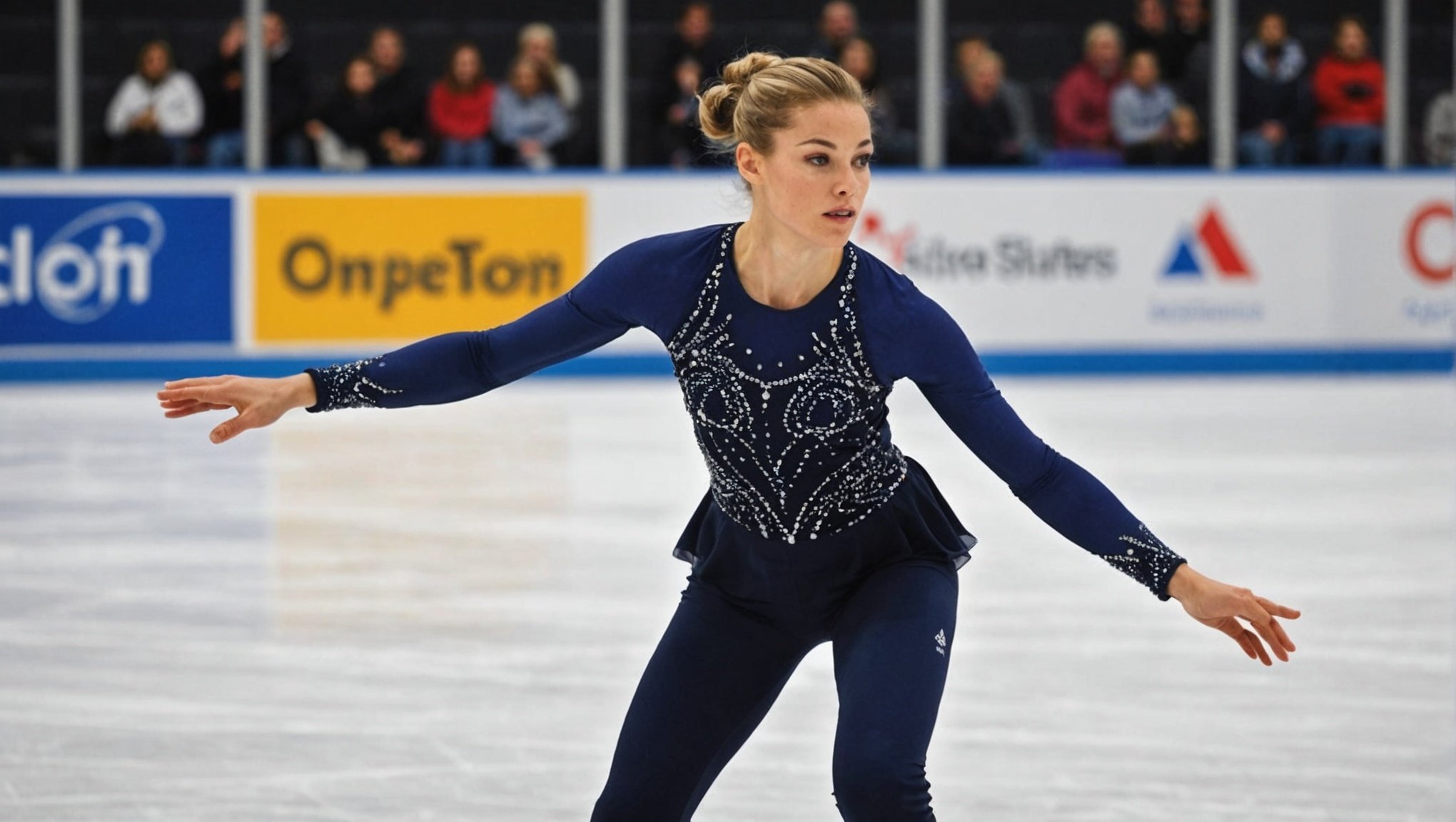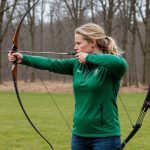Mastering Pre-Competition Calm: Essential Nerve-Management Strategies for Competitive Ice Skaters
Competitive ice skating is a sport that demands not only physical prowess but also mental toughness. The pressure to perform at the highest level can be overwhelming, especially when the stakes are high. In this article, we will delve into the essential strategies for managing pre-competition nerves, helping competitive ice skaters to stay calm, focused, and ready to deliver their best performance.
Understanding the Mental Game in Ice Skating
Ice skating, particularly figure skating, is as much a mental sport as it is physical. The mental game plays a significant role in an athlete’s performance, influencing their confidence, focus, and overall resilience.
Topic to read : Mastering Windy Shots: Effective Technique Adjustments for Archers to Boost Accuracy
“Skating is a sport where you have to be in the moment and fully focused. Any distraction or mental lapse can result in a mistake,” says Dr. Cassidy Preston, founder of CEP Mindset, a leading mental performance coaching firm.
To excel, skaters need to develop strong mental skills that help them manage anxiety, build confidence, and maintain a positive mindset.
Also to discover : Mastering Precision: Enhancing Accuracy in Professional Darts Through Mental Training Techniques
Breathing Exercises and Relaxation Techniques
One of the most effective ways to manage pre-competition anxiety is through breathing exercises and relaxation techniques. These methods help regulate the body’s stress response, reducing feelings of nervousness and tension.
Deep Breathing
- Diaphragmatic Breathing: Focus on breathing deeply into the diaphragm rather than shallow chest breathing. This helps slow down the heart rate and calm the nervous system.
- 4-7-8 Breathing: Also known as the “relaxation breath,” this technique involves inhaling for a count of 4, holding the breath for a count of 7, and exhaling for a count of 8.
Progressive Muscle Relaxation
- Muscle Tension and Release: Tense and then relax different muscle groups in the body, starting from the toes and moving up to the head. This helps release physical tension and promotes relaxation.
Visualization
- Positive Imagery: Visualize yourself performing well and overcoming challenges. This technique can enhance confidence and reduce anxiety by mentally rehearsing successful outcomes.
Here is a detailed list of breathing exercises and relaxation techniques that can be beneficial for competitive ice skaters:
- Yoga and Meditation: Practices that combine physical movement with deep breathing and mindfulness.
- Mindfulness Meditation: Focus on the present moment, often through guided meditations or apps.
- Autogenic Training: A technique that involves visualizing different parts of the body becoming heavy and relaxed.
Building Mental Toughness
Mental toughness is a critical component of an elite athlete’s arsenal. It involves developing resilience, focus, and the ability to perform under pressure.
Toughness Training
- Exposure to Pressure Situations: Coaches can simulate high-pressure situations during training to help skaters become accustomed to performing under stress.
- Positive Self-Talk: Encourage skaters to use positive affirmations to boost their confidence and self-belief.
- Goal Setting: Set both short-term and long-term goals, helping skaters stay motivated and focused on their objectives.
Role of Coaches
Coaches play a pivotal role in helping skaters develop mental toughness. Here are some strategies coaches can use:
- Personalized Mental Preparation: Tailor mental preparation strategies to the individual needs and personality of each skater.
- Feedback and Support: Provide constructive feedback and emotional support to help skaters build resilience and confidence.
- Team Dynamics: Foster a positive team environment where skaters can support and motivate each other.
Enhancing Sports Performance Through Mental Strategies
Mental strategies can significantly enhance sports performance by improving focus, reducing anxiety, and boosting overall mental resilience.
Focus and Concentration
- Pre-Performance Routines: Establish consistent pre-performance routines that help skaters get into the right mindset. This could include activities like reading, listening to music, or doing a specific warm-up.
- Mental Rehearsal: Skaters should mentally rehearse their performances, visualizing themselves executing each element flawlessly.
Managing Self-Doubt
- Self-Reflection: Encourage skaters to reflect on their performances, identifying areas of improvement and strengths.
- Positive Reinforcement: Use positive reinforcement to counteract self-doubt, focusing on past successes and achievements.
Here is a comparison of different mental strategies and their benefits:
| Mental Strategy | Description | Benefits |
|---|---|---|
| Breathing Exercises | Techniques to regulate breathing and reduce stress. | Reduces anxiety, promotes relaxation. |
| Visualization | Mental rehearsal of successful performances. | Enhances confidence, improves focus. |
| Positive Self-Talk | Using affirmations to boost self-belief. | Increases confidence, reduces self-doubt. |
| Goal Setting | Setting short-term and long-term goals. | Improves motivation, enhances focus. |
| Mental Rehearsal | Visualizing performances before they happen. | Improves focus, reduces anxiety. |
Practical Insights and Actionable Advice
For young athletes and aspiring figure skaters, here are some practical insights and actionable advice to help master pre-competition calm:
Develop a Pre-Competition Routine
Establish a consistent routine that you follow before each competition. This could include activities like stretching, listening to music, or doing a specific warm-up. Consistency helps in reducing anxiety and getting into the right mindset.
Seek Professional Help
If you find it challenging to manage your nerves on your own, consider seeking help from a mental performance coach. These coaches specialize in helping athletes develop the mental skills needed to perform at their best.
Focus on the Process, Not the Outcome
Instead of worrying about the outcome of the competition, focus on the process of preparing and performing. Concentrate on executing each element to the best of your ability, and let the results follow naturally.
Build Resilience
Resilience is key in competitive sports. Learn to bounce back from setbacks and failures. Analyze what went wrong and use it as an opportunity to improve.
Future Research and Trends
As the field of sports psychology continues to evolve, there is a growing emphasis on the integration of technology and data analytics to enhance mental performance.
Use of Wearable Technology
Wearable technology can provide real-time data on an athlete’s physiological state, helping coaches and mental performance specialists tailor their strategies more effectively.
Personalized Training Packages
With the help of AI and machine learning, training packages can be personalized to meet the unique needs of each athlete, including their mental preparation.
Mental Health Awareness
There is an increasing focus on mental health awareness in sports. Future research is likely to delve deeper into how mental health impacts performance and how athletes can maintain good mental health.
In the words of Grant Holloway, a world champion and Olympian hurdler, “Mental preparation is just as important as physical training. It’s about finding that balance and staying focused on your goals”.
Mastering pre-competition calm is crucial for competitive ice skaters who aim to perform at their best. By incorporating breathing exercises, building mental toughness, and using various mental strategies, skaters can manage their nerves effectively and enhance their overall performance.
Remember, mental preparation is a continuous process that requires dedication and practice. With the right strategies and support, any skater can develop the mental resilience needed to thrive under pressure.
As you prepare for your next competition, take a deep breath, focus on your process, and trust in your training. The mental game is just as important as the physical one, and mastering it can make all the difference in your performance.











